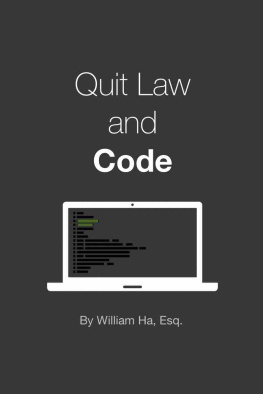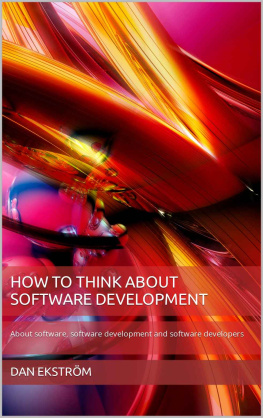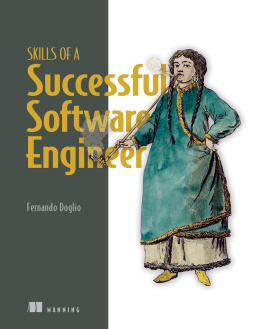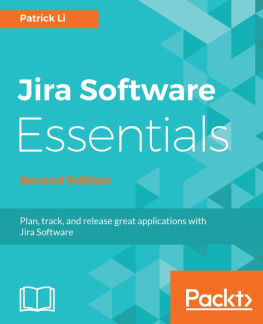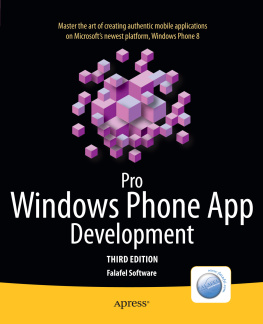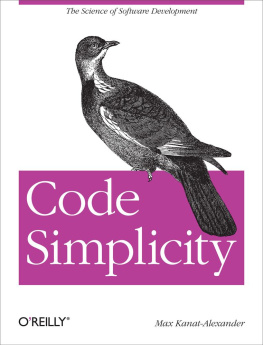Quit Law and Code
William Ha, 2015ii
Table of Contents
Preface
1. Just Quit
2. Why Software Development
3. Can You Do This?
4. Finding a Transitory Job
5. The Fastest Way to Employment
6. Is There Another Path?
7. Different Technology Stacks
8. Shopping List
9. Freelancing
10. The Action Plan
11. The Technical Interview
12. Congratulations
iii
Preface
Though Im still a licensed and active attorney, its been at least two years since I worked on a case myself. I plan to keep my license up to date and stay in compliance of my continuing education requirements (more on this later), but softwaredevelopment is how Im earning a living today. Despite the name, this book isntjust for lawyers. Its for anyone whos interested in entering the software development world, but do not know where or how to start. Whether youve been practicing law for some time, are still a student, or in a job youre not passionate about, this book should be applicable to you. In fact, if you happen to be a liberal arts student still in undergrad, please consider this book as a calling to the profession.
I became a lawyer on my 26th birthday (effectively a K-JDer) in the middle ofthe great recession, and I was fortunate enough to have found an associate position. But I quickly became unhappy in the first two years of practice at the firm. After some retooling and different jobs, I started teaching myself how to programat age 30 and secured my first software development job the following year programming iOS applications for the iPhone. If Id known earlier what I know now, I would have made the transition more gracefully. This particular pivot was thestrongest and concerted in my career path.
There are two mindsets you can have when it comes to this transition: 1) If you pursued the law path and identified with it for most of your young life(30 years), a successful pivot to do something else is not out of reach.
2) Because you went to law school, its a possible indication that youre able to succeed in software development as well - as in, its an asset and not a liability assomeone with legal training.
With the success of Silicon Valley, many trained as lawyers have joined MBAsin pursuing product manager roles at startups and other technology companies asan alternative career. These people are at a disadvantage because they dont havethe business skill set on paper to give employers reason to take a chance. Whatthese lawyers probably dont realize is that theyre closer than they know in beingable to do the software development themselves to build a minimally viable product. If they knew this, they wouldnt only pursue those types of positions. Beingable to build software applications will be the stamp on your ticket to the a varietyof roles in Silicon Valley as someone with a background in law. Because of this, I propose anyone who is interested in this industry to become a software developerfirst as an entry point.
First and foremost, this isnt a programming book. I wont be covering pointers, variables, data structures and algorithms. The goal of the book is to convey aguide that lets you pick and choose how you can learn what you need to know justenough about software development on your own to be a contributing member to ateam or product. Once you are employed as a software developer, you should continue learning the fundamentals of software engineering, which includes algorithms and data structures and software design.
This shift will not be easy, and unlike going through the hoops of being admitted to a state bar, the path to a working software developer isnt as well defined,
v
though its much more forgiving - many software developers got to their roles without having studied computer science in a formal higher education setting. Thegood thing is that the path isnt as long. Regardless of your current profession orstage in your career, reading through the steps behind my career shift will give you an insight into what goes on in making such a transition.
Another point to consider is that perhaps learning software development is notreally a career transition. Consider the statement, software is eating the world.This was a conclusion made by Marc Andreessen - creator of Netscape and nowgeneral partner at the venture capital firm Andreessen Horowitz - in an articlewritten published in the Wall Street Journal in 2011. In short, his argument is thatsoftware is supplanting much of the physical space that industries have traditionally occupied. Whichever sector you can think of, software has a part in it, and willincreasingly continue to do so. Photography, oil, gas, recruiting, healthcare, and the financial industry is becoming increasingly dependent on software for greaterefficiency, profits, and survival. By the end of your career, what the landscape willlook like will be completely different from when you graduated law school.
When I made the decision to major in Philosophy in undergrad, it was also adecision to go to law school. I became allergic to technology, and told myself myinterests were simply elsewhere. The danger in the thought that you can only do aparticular thing only if you studied it is that its a limiter, potentially cutting futuregreater opportunities elsewhere. Do not fall into this trap.
A habit that younger students and people unfamiliar with the situation have, isthink is that youll get a job in the specific field you study, or that you study something in preparation for the type of job you want. This is an older model thatdoesnt really apply in todays job marketplace. In practice, today, many peoplesoccupation often have a vague relation to what they studied in college. In an extreme example, many Ivy League students who enter finance studied the liberalarts. Theres more than whats at play on the surface of that statement, but the reality is that completion and success in undergraduate studies can only prove onesaptitude and promise when it comes to the work force, not performance.
A very successful software venture capitalist named Peter Thiel, who cofounded PayPal with Elon Musk and went on to become the first substantial investor of Facebook, was a Stanford law graduate. After law school, Thiel earned anappellate clerkship for the 11th circuit. In the legal world, Thiel had won everycompetition up to this point, and seemed to have been destined for a stellar legalcareer. But a pivotal moment occurred when he was not chosen to clerk at theUnited States Supreme Court after interviewing with both Justice Kennedy and Scalia. Instead of working at a law firm after being passed, Thiel traded derivatives and shortly got into working on a product which ended up being PayPal. Thiel likes to recount an encounter with a friend from Stanford law, which occurred after the success and buy out of PayPay for 1.5 billion, who had known ofThiels struggles of being snubbed for the Supreme Court clerkship. The friend said, See, arent you glad that you didnt get that clerkship?
In his book about entrepreneurship, Zero to One Thiel writes about that exchange, With the benefit of hindsight, we both knew that winning that ultimatecompetition would have changed my life for the worse. Had I actually clerked onthe Supreme Court, I probably would have spent my entire career taking depositions or drafting other peoples business deals instead of creating anything new.This story illustrates one of the foundational philosophies of Peter Thiel, that competition in its extreme form is bad for all competitors in a marketplace. He pointsout that competition can make people believe there are opportunities were none
vii
exists. Potential profits are driven down as each rival are trying to out do eachother: much of his examples are about big businesses rivalries between the likes ofGoogle and Microsoft and their products, but if we take this idea and apply it to the legal job landscape, well see a similar picture of extreme competition beingharmful and detrimental to the profession as a whole. In other words, playing anextremely crowded game limits your ability to shape the landscape and to thrive.

